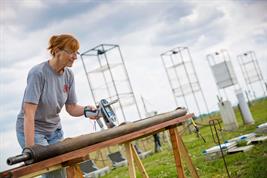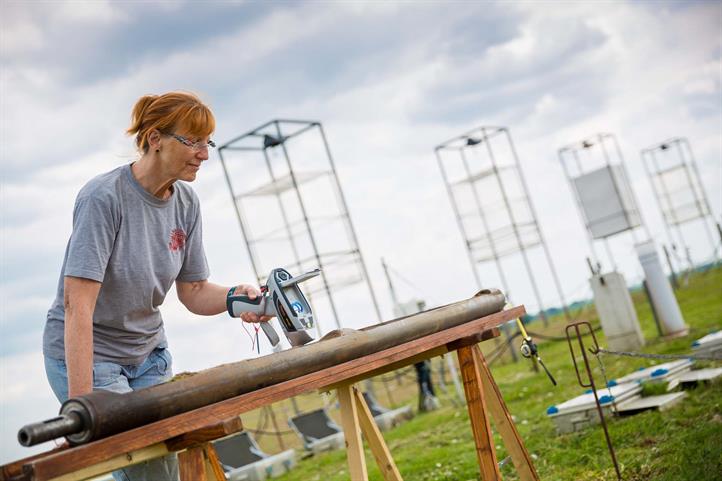09.11.2022
Press Release

The FAIRagro consortium aims to create an infrastructure for agrosystems research data to facilitate cross-institutional and interdisciplinary research. As confirmed by the Joint Science Conference (GWK) in a press conference on November 4, 2022, FAIRagro will be included as a consortium in the National Research Data Infrastructure (NFDI) and funded by the federal and state governments from March 2023. A funding period of five years is planned. FAIRagro is coordinated by the Leibniz Center for Agricultural Landscape Research (ZALF) in Müncheberg and comprises 29 partners.
Agrosystem research in Germany comprises many disciplines. Different types of research data are collected and stored in different ways in a number of specialized institutes. The spectrum of data formats ranges, for example, from laboratory results and satellite images to qualitative interviews with farmers. To make these data findable, accessible, interoperable, and reusable for researchers from different disciplines in the future, the FAIRagro consortium will establish a research data infrastructure (RDI) for agrosystems research that connects the different disciplinary data repositories. In addition, FAIRagro will provide a network of direct contacts for research data management issues in the agrosystems community.
In November 2021, the FAIRagro project proposal was submitted to the German Research Foundation (DFG) for funding from 2023-2027 and was recommended for funding by a DFG expert panel in spring 2022. Now, at a press conference of the GWK, it was confirmed that FAIRagro will be included in the NFDI as one of eight additional consortia in the third and final funding round. So far, 19 consortia are already part of the NFDI.
The NFDI aims to create a permanent digital repository for the storage, networking and use of research data in various disciplines. Up to now, research data have often been stored in a decentralized, project-based and temporary manner. The NFDI aims to make research data systematically accessible and thus easier to re-use across disciplines or institutions.
Project partners:
- Leibniz-Centre for Agricultural Landscape Research (ZALF) (Coordination)
- Julius Kühn Institute – Federal Research Centre for Cultivated Plants
- ZB MED – Information Centre for Life Sciences
- Kuratorium für Technik und Bauwesen in der Landwirtschaft
- Senckenberg – Leibniz Institution for Biodiversity and Earth System Research
- Forschungszentrum Jülich
- Leibniz Institute for Information Infrastructure
- Leibniz Institute of Plant Genetics and Crop Plant Research
- University of Bonn
- Johann Heinrich von Thünen Institute - Federal Research Institute for Rural Areas, Forestry and Fisheries
- Hans Eisenmann-Forum for Agricultural Sciences
- Leibniz Institute for Agricultural Engineering and Bioeconomy
- Bielefeld University
- Generaldirektion der Staatlichen Archive Bayerns
- German Agricultural Research Alliance
- Deutsches Biomasseforschungszentrum gGmbH
- German Soil Science Society
- Scientific Society for Plant Protection and Plant Health
- Deutscher Wetterdienst
- University of Göttingen
- Gesellschaft für Pflanzenbauwissenschaften
- University of Applied Sciences Weihenstephan-Triesdorf
- Informationssystem für die integrierte Pflanzenproduktion
- Bavarian State Research Center for Agriculture
- Office of the Think Tank Digitalization at the Thünen Institute
- Helmholtz Centre for Environmental Research
- University of Hohenheim
- Head Office of the GBV Common Library Network
- Zentralstelle der Länder für EDV-gestützte Entscheidungshilfen und Programme im Pflanzenschutz
 Press Release as PDF file
Press Release as PDF file
Funding:
For the establishment and support of the 27 NFDI consortia, the federal and state governments will provide a total of up to 90 million euros annually until 2028 in a ratio of 90 percent to 10 percent.
Further information:
Pictures
For downloading the pictures please click on a picture and use the icon
 .
.

In agrosystem research, different types of data is collected - as here at ZALF during the examination of a soil sample. The FAIRagro consortium has set itself the goal of simplifying access to agrosystem research data. From March 2023, the project will be funded by the federal and state governments as part of the National Research Data Infrastructure (NFDI). | The picture can be used for editorial purposes by stating the source: © ZALF/ Jarno Müller
